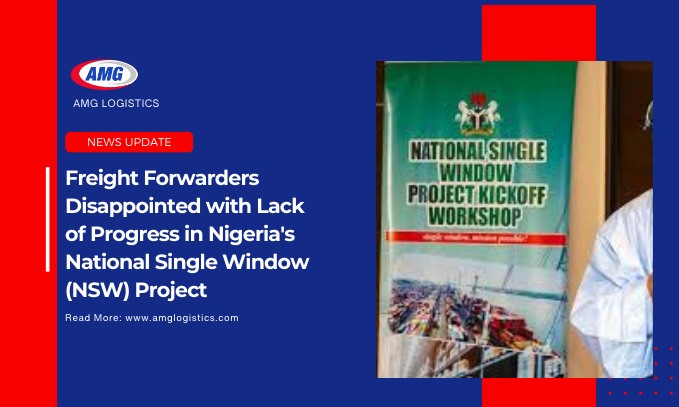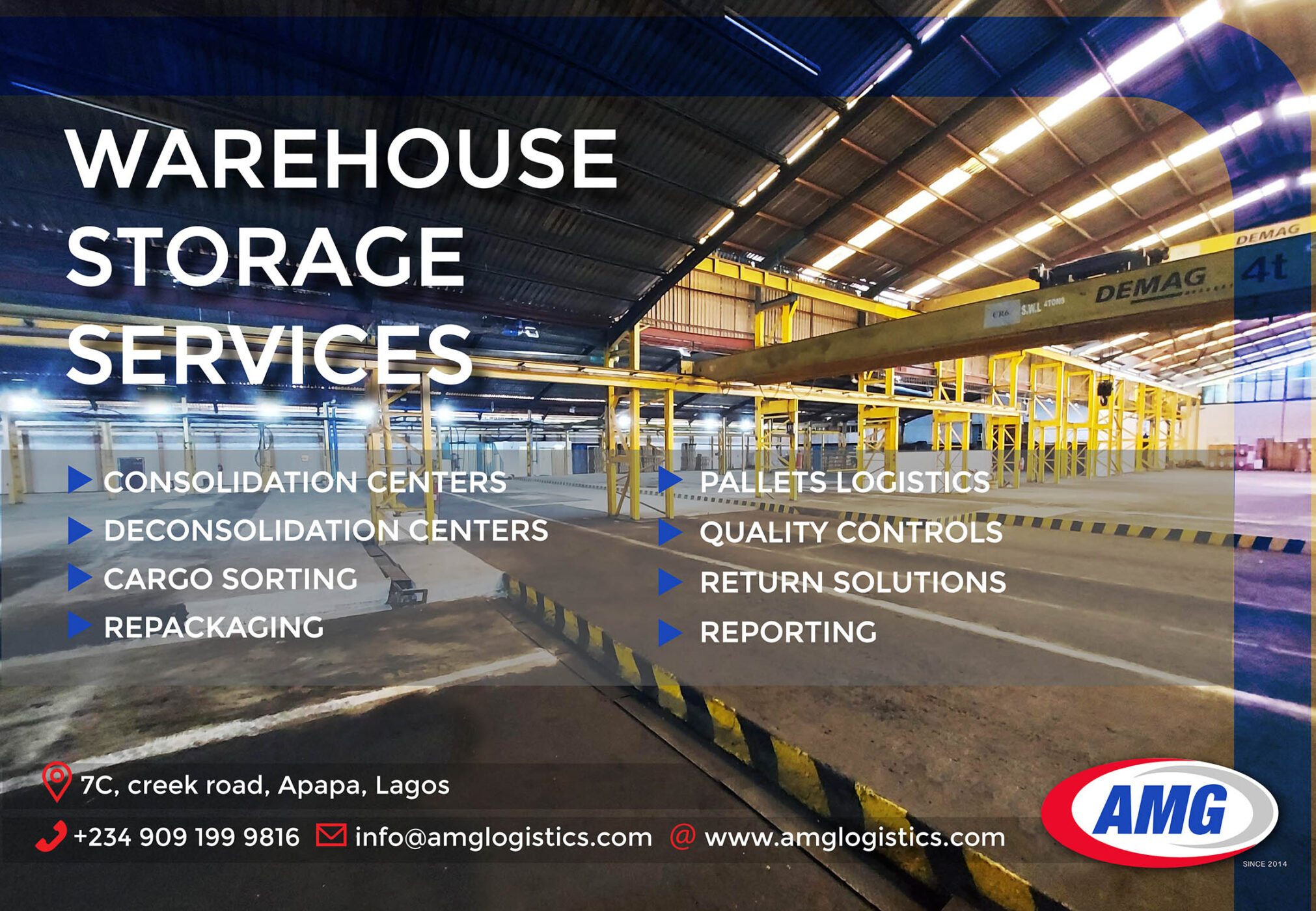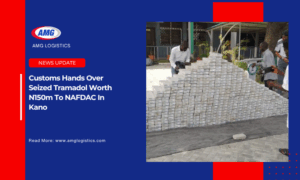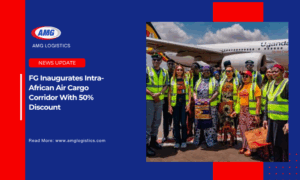Nigerian ship owners have refuted claims that they lack the capacity to transport petroleum products from the Dangote Refinery, asserting that they possess enough vessels to handle the task.
This comes after recent concerns were raised about the refinery’s decision to transport its refined products primarily by sea, with allegations that foreign vessels could dominate the process, leaving local operators at a disadvantage.
Weighing in on this, Dr MkGeorge Onyung, former President of the Ship Owners Association of Nigeria (SOAN), dismissed these claims as inaccurate. According to Onyung, Nigerian ship owners are capable of handling the refinery’s cargo requirements. “That’s a lie, we have enough ships owned by Nigerians that can move PMS from Dangote refinery,” Onyung declared. “Go to NIMASA, they have the list of registered ships; you can make your findings”, he told our correspondent last week.
His remarks were in response to concerns voiced by stakeholders within the maritime community that Dangote’s transportation plans would mainly cater to large foreign vessels, thereby shutting out smaller Nigerian-owned ships.
But, Onyung insists that this narrative is false, adding that the Nigerian Maritime Administration and Safety Agency (NIMASA) holds comprehensive records of locally-owned vessels that are capable of participating in the transportation of Dangote products.
Onyung further emphasized the importance of adhering to the Cabotage Act, which mandates that vessels operating within Nigerian coastal waters must be owned and manned by Nigerians. He called on NIMASA to enforce the law strictly, ensuring that local shipowners are prioritized in the transportation of Dangote Refinery’s petroleum products
“The Cabotage Act was established to protect local shipowners, and it is NIMASA’s responsibility to make sure it is enforced. If Nigerian ships are overlooked in favour of foreign vessels, that would be a direct violation of the law,” Onyung argued.
Also, Dr. Edward Sowho, Chairman Cabotage Vessels Financing Fund (CVFF) committee, set up by the Nigerian Ship owners Association (NISA), echoed similar sentiments. He stated that providing opportunities for Nigerian ship owners to transport petroleum products from the refinery would be instrumental in developing the local shipping industry.
He highlighted that if given the necessary petroleum products lifting contracts, Nigerian shipowners would be able to acquire more vessels, either through leasing or direct purchase. According to him, the idea that local operators lack the capacity is a weak excuse.
Sowho stated further that, “if it is required for ship owners to acquire more ships, either by leasing or by buying, a contract from Dangote would enable some of them to do just that. Some ship owners already have agreements with foreign operators for collaboration, where foreign vessels can be brought in to work with Nigerians. So, the issue isn’t lack of capacity, it is a question of giving the contracts. Once the contracts are available, the vessels will come. That is not an excuse.”
Sowho further argued that awarding contracts to foreign companies only serves to drain the Nigerian economy. He noted that these foreign companies often do not pay taxes in Nigeria, and the money earned from transporting the refinery’s products is lost to offshore accounts.
“We lose a lot of money because the payments for these jobs are made to foreign companies that do not contribute to our economy. But if Nigerians are given the job, they will lease vessels, buy vessels, and the revenue generated will stay within the country, benefiting our economy.”
He stressed that Dangote Group should focus on supporting local shipowners instead of contracting foreign companies. “Dangote should give Nigerians the opportunity instead of going abroad like they are doing now. If Nigerians are given the contracts, they will lease vessels or even purchase new ones that meet the required capacity. Some Nigerians already own vessels that meet the specifications, and those who don’t can acquire them if the business is there.”
On his part, Prince Ayorinde Adedoyin, a prominent shipowner and member of the Nigerian Shipowners Association (NISA), also lent his voice to the discussion, affirming that some Nigerians do indeed own vessels that are capable of handling large volumes of refined petroleum products.
He acknowledged, however, that not all Nigerian ship owners have invested in such large tankers because the bulk of their operations have traditionally focused on coastal trade, which does not require vessels of that size.
“There are Nigerians who own vessels that can carry the required 30,000 metric tonnes of refined products, but whether they are operating in Nigerian waters right now is something I cannot confirm,” Adedoyin said.
“The reality is that many shipowners have not invested in vessels of that size because their focus has been on coastal trade. But to say that there are no Nigerians with the capacity would be wrong.”
He pointed out that with time, more Nigerian shipowners would invest in the required vessels if they had the assurance of steady work. “If there is a clear indication that the jobs are available, people will be more willing to invest. These are large tankers, and it takes significant financial commitment to acquire them. But if there is a guaranteed business for them, Nigerian shipowners will invest. We need to focus on providing opportunities for local operators to thrive.”
Adedoyin also expressed reservations about relying too heavily on partnerships with foreign ship owners, stating that such arrangements do not contribute to the growth of Nigeria’s economy. “Partnering with foreign companies is not really the best for us because when they are paid, the money doesn’t stay in our economy. The funds go to foreign accounts, which does nothing to benefit our economy. We need to start looking inward and doing business in a way that allows us to retain foreign exchange and boost the stability of our economy,” he said.
He emphasized that while partnerships with foreign companies may provide a temporary solution, the long-term goal should be for Nigerians to own their vessels and retain the profits within the country. “It’s not just about getting the job done; it’s about ensuring that the wealth generated stays within our economy. If we continue to let foreign operators dominate our waters, we lose out on significant economic benefits.”
Adedoyin urged Dangote Group to publicly commit to supporting local shipowners by awarding contracts to Nigerian-flagged vessels. He also called on NIMASA to ensure the enforcement of the Cabotage Act, which he said is crucial to the growth of Nigeria’s shipping industry.





